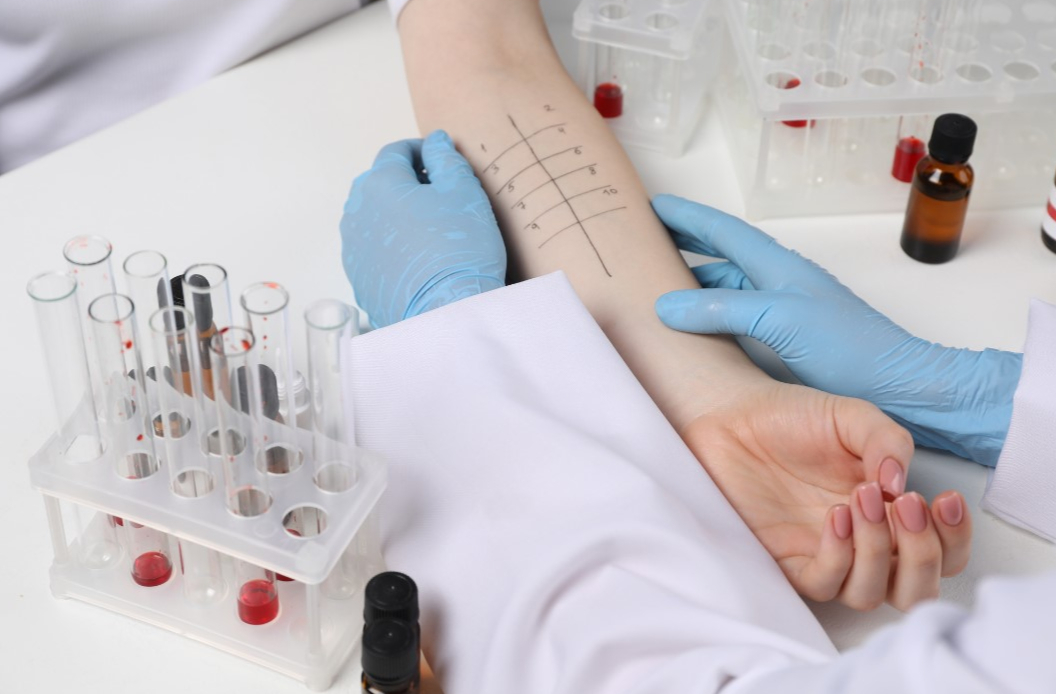Understanding Allergy Testing: How to Breathe Easier by Identifying Triggers

Seasonal changes often bring the familiar discomfort of allergies: itchy eyes, a runny nose, sneezing, and congestion. Whether triggered by pollen in the spring or pet dander throughout the year, allergies can interfere with daily life and well-being. Allergy testing plays a pivotal role in identifying specific triggers, offering a pathway toward managing symptoms and gaining control over your health.
Why Allergy Testing is Crucial
Allergy symptoms can vary widely in severity. From mild irritations to more serious reactions, pinpointing the cause is essential for effective management. Allergy testing helps identify the exact substances—whether they are environmental, food-related, or otherwise—that provoke your body’s response. With this knowledge, healthcare providers can recommend targeted treatments and lifestyle adjustments to alleviate symptoms and enhance quality of life.
Testing is not only important for those with severe or chronic symptoms but also for those experiencing seasonal discomfort. A comprehensive allergy test can shed light on what’s truly behind your symptoms, allowing for a clearer path toward relief.
Types of Allergy Tests Available
1. Skin Prick Testing
A common and reliable method for detecting allergens, this test involves applying small amounts of allergens to the skin and pricking it lightly. If you’re allergic to a substance, your skin will develop a small raised bump, providing immediate and clear results. Skin prick testing is quick, minimally invasive, and highly accurate for diagnosing common environmental and food-related allergies.
2. Blood Tests (IgE Testing)
For those unable to undergo skin testing, blood tests provide an alternative. These tests measure Immunoglobulin E (IgE) antibodies in the bloodstream, which are produced in response to an allergic reaction. Blood tests can identify a broad range of allergens, from seasonal pollen to specific foods and pet dander, providing detailed insights into your allergic sensitivities.
3. Food Allergy Testing
As food allergies become increasingly prevalent, testing for food sensitivities is vital. Whether you’re experiencing hives, gastrointestinal issues, or more severe reactions like anaphylaxis, pinpointing the specific food allergens can help mitigate risks and manage symptoms. Specialized testing can help identify common culprits such as nuts, shellfish, dairy, or gluten.
4. Environmental Allergy Testing
Environmental allergens, including mold, dust mites, and pollen, are major triggers for those with seasonal or year-round allergies. Through specialized testing, these environmental factors can be identified, allowing individuals to take proactive steps to reduce exposure in their homes and workplaces. Identifying these triggers can provide clarity on how best to manage symptoms during high-exposure seasons.

Expert Staff
Trained professionals with experience in allergy testing guide you through the process. They will answer any questions and ensure you’re comfortable throughout the procedure.
Comprehensive Testing
In-depth allergy tests provide a clearer understanding of the substances that are affecting your health. These tests go beyond the basics, offering a thorough examination of common and rare allergens, which is crucial for comprehensive care.
Accurate, Fast Results
Professional clinics use state-of-the-art technology to ensure accurate results, giving you the confidence needed to make informed decisions about treatment.
Personalized Approach
Every individual’s allergies are unique. A professional clinic takes time to assess your specific symptoms and create a personalized plan to tackle your allergy concerns.
Convenience
With a wide range of testing options and flexible scheduling, allergy testing becomes an easier, more accessible step toward relief.
What to Expect During Allergy Testing
The testing process is generally straightforward and typically lasts between 30 minutes to an hour. During a skin prick test, a technician will apply allergens to your skin and perform light pricks. You will then wait for a short period to observe any reactions. If you opt for blood testing, a quick blood sample will be taken to measure IgE antibodies. In both cases, results are typically available within a few days to a week, depending on the type of test.
Following the test, you’ll be given detailed results. The healthcare provider will discuss your triggers and suggest lifestyle changes, avoidance strategies, or treatment options, such as antihistamines or allergy shots, to help alleviate your symptoms.

Taking Control of Your Health
Allergy testing is the first step in taking control of your health and improving your quality of life. By identifying specific triggers, you can develop an effective strategy for managing symptoms, reducing exposure, and making informed decisions about lifestyle and treatment options. Whether you suffer from seasonal allergies or have year-round sensitivities, allergy testing is an important tool in navigating your health challenges.
If you’re tired of dealing with persistent allergy symptoms, allergy testing provides clarity and relief. Understanding exactly what’s causing your symptoms allows you to make proactive decisions for your health.
Schedule Your Allergy Test Today
Don’t let allergies dictate your daily life. Taking the first step toward relief is simple: schedule your allergy test with NovaLab today. NovaLab offers comprehensive testing, performed by an experienced medical team, will help you uncover the causes of your symptoms and guide you toward effective solutions. Get back to enjoying life without the constant discomfort of allergies.
To book your allergy test or for more information, contact us today. Let’s work together to help you breathe easier and live better!
